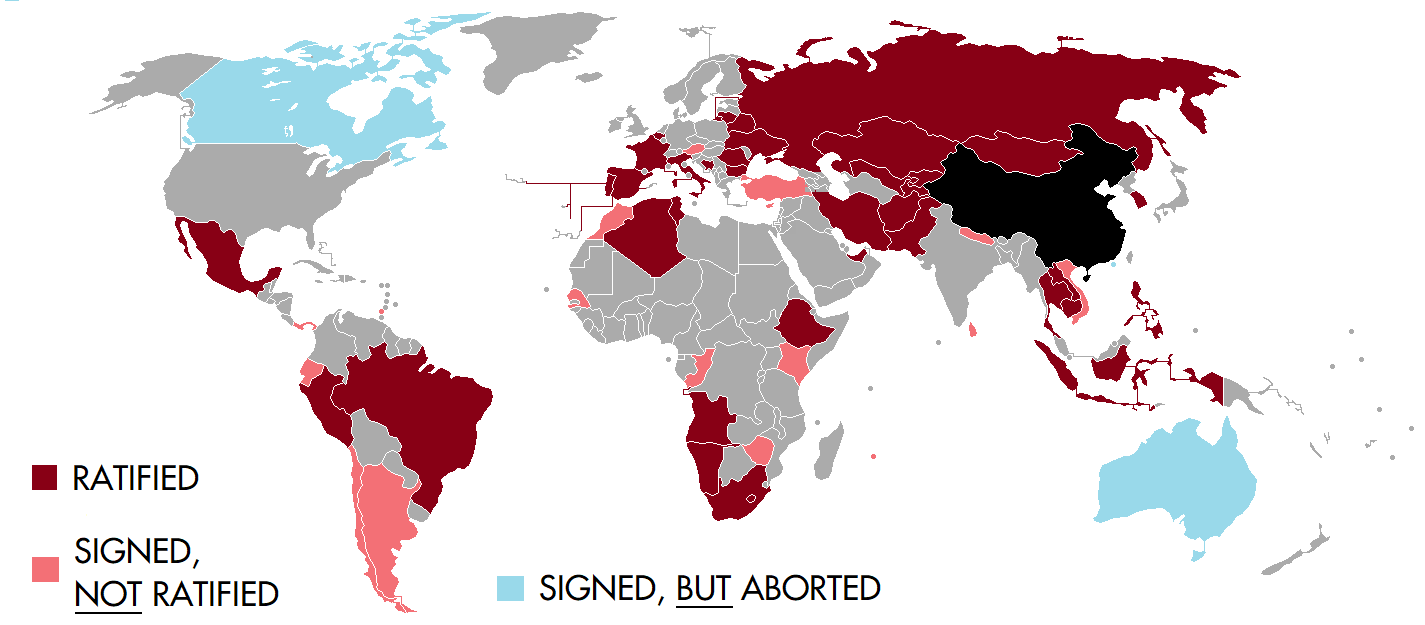Czech court rules against extraditing Taiwanese to China
 The Constitutional Court of the Czech Republic (CCC) has ruled that eight Taiwanese who are accused by Beijing of telecom fraud cannot be extradited to China. The ruling was posted by the court itself last week here (in Czech):
The Constitutional Court of the Czech Republic (CCC) has ruled that eight Taiwanese who are accused by Beijing of telecom fraud cannot be extradited to China. The ruling was posted by the court itself last week here (in Czech):
A press release in English is also available, here:
The Prague-based court ruled that a 2018 decision by the Municipal Court in Prague, later upheld by the High Court in Prague, to extradite the Taiwanese had not taken into account the likelihood they would suffer from torture and other inhumane treatment if they were sent to China.
The refusal to grant Beijing’s request follows a landmark ruling last year by Sweden's Supreme Court in which Safeguard Defenders’ director Peter Dahlin gave evidence, and which ended in the decision to bar extradition to China of one of the country’s most wanted men, also on human rights grounds.
The Constitutional Court of the Czech Republic is a special court that oversees cases that involve violations of people’s rights by the constitution. It's the highest court in the country for these matters, and Its decisions are final and cannot be overturned.
Both the Swedish and Czech courts used the European Convention of Human Rights (ECHR) to deny extradition to China. The CCC also used the country’s own Charter of Fundamental Rights and Freedoms, just like the Swedish court also relied on its on Law on Extraditions.
In the case of the Taiwanese, the court invoked Article 3 of the ECHR and Article 7(2) of its own charter whose wordings are identical:
No one shall be subjected to torture or to inhuman or degrading treatment or punishment.
The CCC, which received evidence from the Czech Ministry of Foreign Affairs, the Chinese embassy, and reports from international bodies and organizations, concluded that guarantees provided by China that the suspects would not face torture or mistreatment were insufficient. In part, because these guarantees were not given by a body that had authority under Chinese law to honour those guarantees. It also noted that Chinese law prohibiting torture was not itself sufficient to rule that it would not be used, because of evidence presented that torture is widespread in China.
In addition, the court said that it was not confident that Czech consular staff in China would necessarily be given access to the Taiwanese once they were sent to the country because such right of access is not guaranteed under Chinese law. It also did not believe that such visits, even if promised, would be carried out in a way that would help secure for them freedom from torture. Finally, it did not believe that a promise to grant access would necessarily be honoured by the Chinese side.
The verdict went further to state the need to be cautious of such guarantees by China, and to look at whether such guarantees, given to other European countries bound by the ECHR, had been honored in the past.
The Taiwanese had not yet been extradited to China because in 2019 the Czech government awarded them “subsidiary protection."
Subsidiary protection is granted to a non-EU citizen who, although does not qualify as a refugee, would face the real possibility of serious harm to forced to go to another country.
China and the controversy over extradition
We welcome both decisions from Sweden and the Czech Republic to block these extraditions to China, a country without the rule of law, guarantee of due process and where rampant torture, enforced disappearances and other human rights abuses are routine. China's conviction rate at criminal trials at first instance 2013-2017 stood at over 99.94%.
Beijing has been pushing hard in recent years to secure extradition agreements with countries around the world with mixed results.
Of course, the most obvious failure was with Hong Kong, whose public were so incensed by a proposal to implement an extradition agreement with mainland China last year that it sparked months of mass protests. The proposal has been dropped for now.
Recent defeats include a 2017 decision by the Australian government that shelved plans to ratify an extradition treaty with China on human rights concerns.
In 2019, Seoul refused China’s request to send 22 Taiwanese to China who had been convicted in Korea of committing telecom fraud. Instead they sent them back to Taiwan. This is despite the fact that Korea and China have an extradition treaty.
In 2020 both New Zealand Appeals Court and the Swedish Supreme Court barred extraditions, while most recently France bared an extradition to China as well. The case in New Zealand is now being considered by the Supreme Court.
Last year, Madrid sent back over 200 Taiwanese to China on telecom fraud charges. Most recently, Belgium ratified an extradition treaty to China, bring the total number of extradition treatises with China (in effect) to 37, which in Europe includes France, Portugal, Italy, Lithuania, Bosnia, Belarus, the Ukraine, Romania and Bulgaria.
